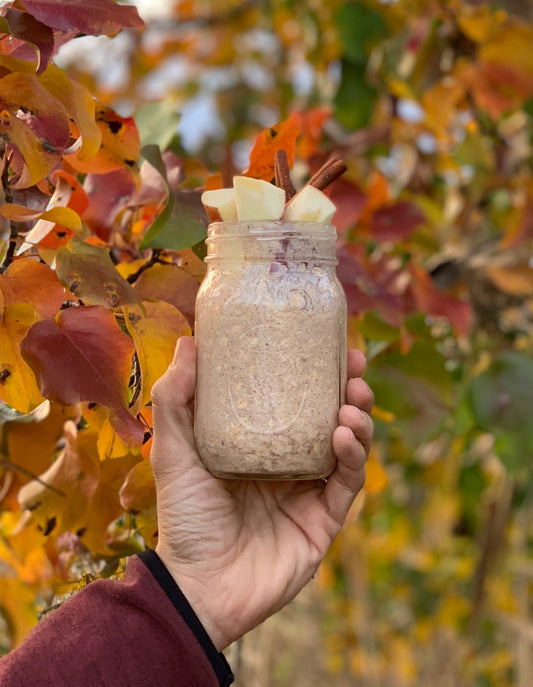Did you kn ow that May 20th is World Bee Day? If you didn’t, that’s okay, because this Sunday will mark the first celebration of the occasion! That’s right - on December 20th, 2017, the United Nations adopted a resolution declaring May 20th the official day to celebrate honey bees and all of the important work they do for the world. According to beeculture.com, the brainchild of this holiday was the president of the Slovenian Beekeeper’s Association, a man named Bostjan Noc, and his idea had the support of every single UN member nation, as well as many world leaders, including Pope Francis! So what is it about bees that led all of these world leaders to come together?
ow that May 20th is World Bee Day? If you didn’t, that’s okay, because this Sunday will mark the first celebration of the occasion! That’s right - on December 20th, 2017, the United Nations adopted a resolution declaring May 20th the official day to celebrate honey bees and all of the important work they do for the world. According to beeculture.com, the brainchild of this holiday was the president of the Slovenian Beekeeper’s Association, a man named Bostjan Noc, and his idea had the support of every single UN member nation, as well as many world leaders, including Pope Francis! So what is it about bees that led all of these world leaders to come together?
Let’s start with the obvious one... honey! Bees collect nectar from flowers, break it down into sugar, and store it in honeycombs within their hives. The combination of the comb’s shape and the constant flapping of the bees’ wings causes the water in the sugar to evaporate, which leaves behind raw honey. When the time is right, beekeepers collect the honeycomb frames, remove the caps from the end of each comb, and extract the honey by spinning the frames in a centrifuge. The remaining honey is filtered to remove any leftover wax, at which point it’s ready to be bottled and sold! (Source: https://www.honey.com/about-honey/how-honey-is-made)
On average, a single beehive has 50,000 bees. Nearly all of those are “worker bees”, that is, bees whose job it is to collect nectar and create honey for the rest of the hive. A typical hive produces 60 to 100 pounds of honey per year and the bees must collectively travel 55,000 miles for every pound of honey they produce! That’s almost 12 trips to the moon and back just for one year’s supply of honey! (Source: http://www.goldenblossomhoney.com/education_bees.php) At Kelly’s Four Plus, we use enough honey to support the production of roughly 140 hives’ worth of honey every year!
 So why do we use honey in our granola? Apart from tasting delicious, honey is a natural sweetener, high in glucose and fructose, which means it won’t raise your blood sugar levels as quickly as regular sugar. (Source: https://www.bbcgoodfood.com/howto/guide/sugar-substitutes-honey-explained) Honey has also been found to have some antibacterial properties, as well as the ability to soothe sore throats. When applied topically, honey has been known to heal some wounds. All of these things might help explain why humans have been collecting honey since at least 8000 BC! (Source: https://www.cnn.com/2018/01/15/health/honey-health-benefits/index.html)
So why do we use honey in our granola? Apart from tasting delicious, honey is a natural sweetener, high in glucose and fructose, which means it won’t raise your blood sugar levels as quickly as regular sugar. (Source: https://www.bbcgoodfood.com/howto/guide/sugar-substitutes-honey-explained) Honey has also been found to have some antibacterial properties, as well as the ability to soothe sore throats. When applied topically, honey has been known to heal some wounds. All of these things might help explain why humans have been collecting honey since at least 8000 BC! (Source: https://www.cnn.com/2018/01/15/health/honey-health-benefits/index.html)
These sweet results have another benefit as well. In the process of collecting nectar, the worker bees are also pollinating flowers and plants, allowing those plants to reproduce and thrive. Those plants include 400 different agricultural species and account for roughly one third of all food consumed globally. Unfortunately, the use of pesticides on crops has caused the global bee population to decline. Without bees, foods such as broccoli, asparagus, cantaloupes, cucumbers, pumpkins, blueberries, watermelons, almonds, apples, cranberries, and cherries would disappear! (Source: https://www.onegreenplanet.org/animalsandnature/why-bees-are-important-to-our-planet/)
Scientists are now using bees to further understand the human brain. Dr. Thomas Seeley, a neurobiologist at Cornell University published a paper in 2012 that outlined a “potential deep parallel between how brains and bee swarms come to a decision.” (Source: https://www.scientificamerican.com/article/you-have-a-hive-mind/) The paper states that human brains, like swarms of bees, operate by analyzing multiple ideas simultaneously and then quickly coming to a consensus. This relationship could help us better understand our own brains, as it is much easier to study and observe bee swarms than the human brain.
So, the next time you are craving something sweet, think with your hive mind and grab some honey!
If you would like to know more about how to help support the global bee population, please visit https://www.worldbeeday.org/en/celebrate-bee-day.html
~ Will Kelly




